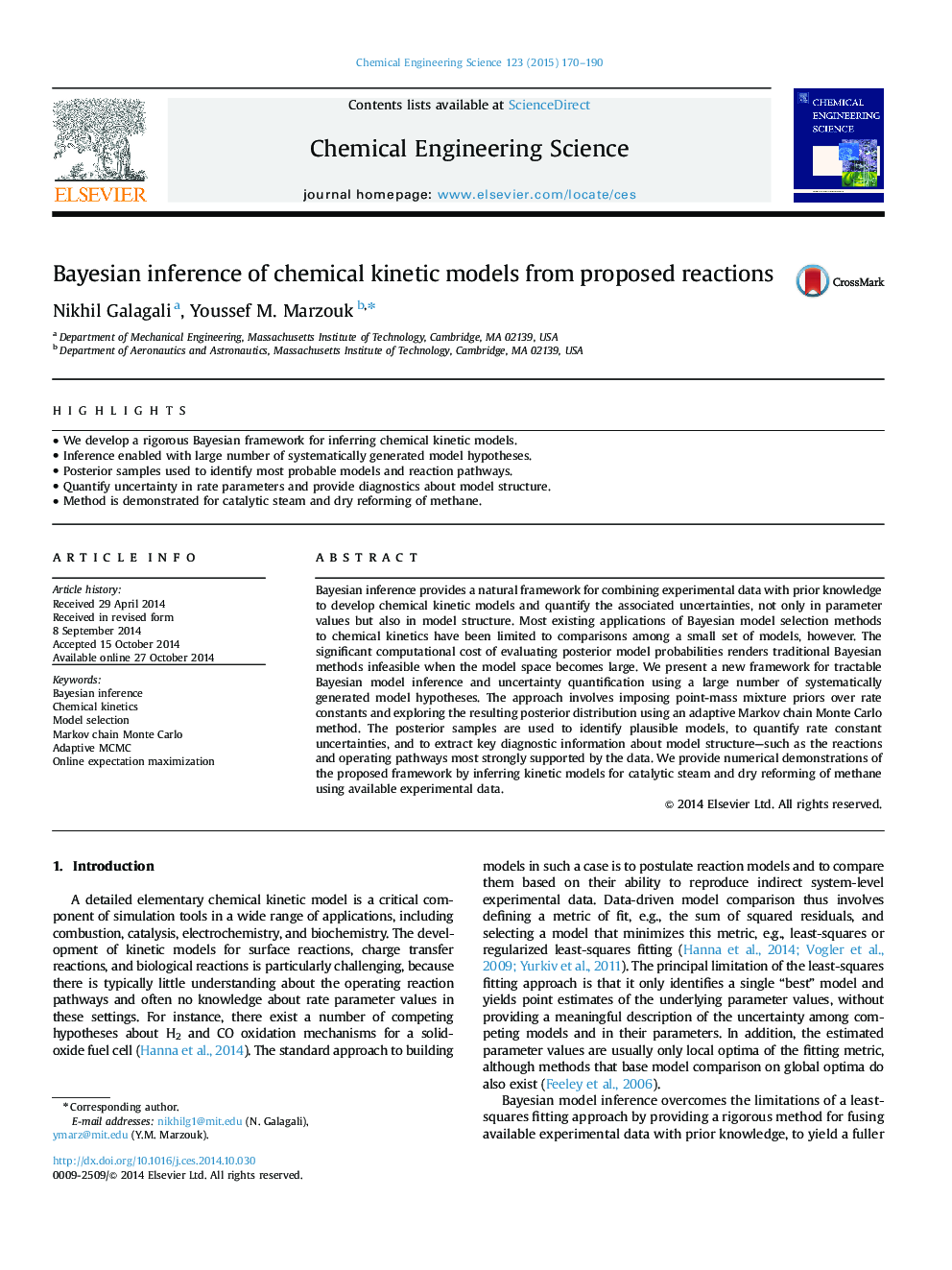| Article ID | Journal | Published Year | Pages | File Type |
|---|---|---|---|---|
| 6590505 | Chemical Engineering Science | 2015 | 21 Pages |
Abstract
Bayesian inference provides a natural framework for combining experimental data with prior knowledge to develop chemical kinetic models and quantify the associated uncertainties, not only in parameter values but also in model structure. Most existing applications of Bayesian model selection methods to chemical kinetics have been limited to comparisons among a small set of models, however. The significant computational cost of evaluating posterior model probabilities renders traditional Bayesian methods infeasible when the model space becomes large. We present a new framework for tractable Bayesian model inference and uncertainty quantification using a large number of systematically generated model hypotheses. The approach involves imposing point-mass mixture priors over rate constants and exploring the resulting posterior distribution using an adaptive Markov chain Monte Carlo method. The posterior samples are used to identify plausible models, to quantify rate constant uncertainties, and to extract key diagnostic information about model structure-such as the reactions and operating pathways most strongly supported by the data. We provide numerical demonstrations of the proposed framework by inferring kinetic models for catalytic steam and dry reforming of methane using available experimental data.
Related Topics
Physical Sciences and Engineering
Chemical Engineering
Chemical Engineering (General)
Authors
Nikhil Galagali, Youssef M. Marzouk,
